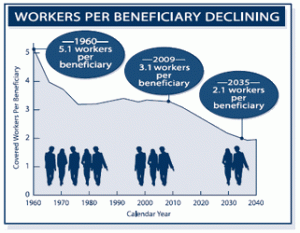How to get a “loan” from the IRS
Posted on: February 11th, 2015 by Amy Bolger Even if your overall cash-flow situation is good, but you still need to cover a short-term deficit, today’s still-strict credit environment often won’t allow you to take out a loan. More than likely, your only option would be an untapped home equity line of credit or a generous relative. If that’s the case, great. If not, you may be able to turn to a surprising source for some help: the taxman.
Even if your overall cash-flow situation is good, but you still need to cover a short-term deficit, today’s still-strict credit environment often won’t allow you to take out a loan. More than likely, your only option would be an untapped home equity line of credit or a generous relative. If that’s the case, great. If not, you may be able to turn to a surprising source for some help: the taxman.
If you’re self-employed, an investor or someone who lives off Social Security benefits, pension payments, retirement account withdrawals, and the like, you can apply for loan from the Internal Revenue Service. Better yet: To borrow from the IRS, you don’t have to fill out any annoying applications, prove your income or fence with a balky loan officer. While this may sound too good to be true, it is true.
What you do is simply postpone some federal income tax payments that you would otherwise make to the IRS via estimated tax installments. You don’t need the government’s permission. You just do it and then make up the difference later. Of course, the IRS will charge interest on the difference between what you should have paid in for each installment and what you actually paid. However, the current interest rate on estimated tax underpayments is only 3%. While the rate can potentially change each quarter, it will probably remain at a reasonable level for a while.
The IRS calls the interest on estimated tax underpayments a “penalty.” But since the current interest rate is only 3%, it’s not really a penalty. In fact it’s actually a pretty good deal for someone with a short-term cash crisis.
Note: If you are a salaried employee, you must pay in federal income taxes via payroll withholding. You may be able to adjust the withholding downward a bit for the rest of this year by turning in a revised Form W-4 to your employer. However, the strategy of borrowing from the IRS is basically unavailable to you. Sorry.
Estimated Taxes:
There is no federal income tax withholding on income from self-employment activities conducted via sole proprietorships, partnerships, or LLCs. Nor is there generally any required federal income tax withholding on interest income, dividends, capital gains, Social Security benefits, pension payments, or taxable retirement account withdrawals. Instead those with income from these sources are expected to make four installment payments of estimated taxes for each year. The installments for the 2012 tax year are due on Apr. 17, June 15 and Sept. 17 of this year, and Jan. 15 of 2013. Obviously the first date has since passed, but the next three are still in the future. So you can work with the installments due on those dates by paying in less than you owe or even nothing at all.
As mentioned, you will be charged interest based on the difference between the amount you should have paid in for each installment and the amount you actually pay for as long as the underpayment remains outstanding. The amount that you should pay in for each installment generally equals the lesser of: (1) 22.5% of what you expect to report on your 2012 Form 1040 for total federal income and self-employment taxes or (2) 25% of what you reported on your 2011 return (27.5% if your 2011 adjusted gross income was over $150,000).
Borrowing from the IRS in this fashion is only a short-term fix. By no later than April 15th of next year, you must catch up for any estimated tax payment shortfalls for the 2012 tax year. If you don’t, the IRS will start charging additional interest of half a percent per month on the shortfall, which equates to a 6% annual rate. That 6% is on top of the “regular” interest charge, which is currently only 3%. So you could be looking at a rate of 9% or maybe more. In any case, owing the IRS for 2012 taxes after April 15th of next year is just not a good position to be in. So, if you are not ready, willing, and able to pay up by that date, this is not a good option for you. You do not, however have to wait until April 15th to catch up. You can do so as soon as you are able and that is the recommendation.


